Action Items:
Skill Set & Superpowers
Science & Research
- Use this remote sensing tool from The Environmental Defense Fund and Google to map local air pollution. Neighborhoods can use the data to reduce emissions and target communities most at risk for health issues.
- Dive into the Clean Power Plan and understand how states can meet their emissions reduction goals.
- Help reduce actions that diminish against the roles of independent scientists! Contact the Union of Concerned Scientists to protect scientists involved in environmental policy-making from political influence.
- Set science-based targets for reducing greenhouse emissions within your company or organization. 1,000+ other companies are taking action!
- Request help from a woman in STEMM through 500 Women Scientists: a resource for journalists, educators, policy makers, scientists, and anyone needing scientific expertise.
- Amplify polling on climate change, public policy and the energy transition! This supports research
done by Climate Nexus in collaboration with the Yale Program on Climate Change Communication. - If you’re a healthcare worker or physician, use the American College of Physicians’ Climate Change Toolkit to help reduce energy use and greenhouse gas emissions in your practice. Physicians can play a substantial role in addressing climate change by advocating for climate change adaptation and mitigation policies, and by educating themselves about climate change and how it affects public and individual health, and the potential health threats it may pose to their community.
- Learn from the National Phenology Network about why phenology (the study of recurring biological events) is so important for understanding climate change and how you can get involved with making your own observations.
Educational
- Stronger and more frequent superstorms, raging wildfires, and other disasters are already forcing millions of people from their homes. Learn about climate-driven migration and sign up for updates on how you can help fight for a more just and safe place to call home.
- Incorporate curriculum/discussion guides in the classroom that bring in topics related to climate change and our relationship with the planet. Refer to this Intergovernmental Panel on Climate Change (IPCC) Special Report which helps summarize important climate issues for educators.
- Inform co-workers and company employees on how they can be more sustainable at their work. Whether it’s recycling in the office, avoiding single use plastics, or sharing materials digitally rather than printing them – you can present these ideas during your lunch hour!
- Learn from the National Phenology Network about why phenology (the study of recurring biological events) is so important for understanding climate change and how you can get involved with making your own observations.
- Put books about climate change in your nearest little free library. Start exploring a list of kid books in our Educators Toolkit.
- Organize local screenings for your community with films that speak to climate issues (we recommend I am Greta, Before The Flood, Kiss The Ground, and Gather!).
- Encourage Climate Literacy in your classroom. Utilize our Educators Toolkit to help educate your students on climate change and how they can make a difference.
- Empower your school to speak up for climate action! Use these free materials from Schools for Climate Action to pass a powerful, non-partisan climate resolution in your school district.
- Get educated on movements that are happening globally, such as the peasant movement in the Philippines. Learn about its relation to climate justice and how you can help support victims and survivors of state-sanctioned violence in the fight for land and human rights.
- Inspire your community and invite a Climate Reality Leader to give you & your friends the latest multimedia presentation about the impacts of climate change. Then join Climate Reality’s 100% Committed campaign and pledge to help your community, business, or school shift to 100% renewable electricity.
- Join Environment America for an underwater hike of six marine protected areas to explore some unique, diverse ecosystems – each of which are success stories demonstrating the power and hope of restoring and protecting our most precious underwater wildernesses. Then sign this petition to help ensure the conservation and protection of 30 percent of our oceans by 2030.
- Take a course on environmental science or environmental policy. There are many courses that also overlap with topics in the humanities, such as environmental racism or development.
Advocacy & Leadership
- Learn about how to call Congress for the issues you’re passionate about.
- Research how to protest safely before hitting the streets.
- Demand recycling stations in your school, place of work or religious organization. You can apply for recycling grants to help fund your initiative at school!
- Become a trained “The Oceanic Standard” advocate and drive responsible consumption in your community! Reach out to: theoceanicstandard@oceanic.global to join the next training.
- Start a Zero Hour Sister Chapter. If you don’t have a climate justice group in your area, become the leader of one. Apply to create a chapter here!
- Back a scientist running for office. Few members of Congress identify as scientists, which many science-minded advocates say is part of the problem when it comes to climate legislation.
- Check out XR Youth’s US Guidebook on how to organize actions in COVID times. This is a great resource for new organizers! You can also learn how to organize a support network in your city: this guide from XR Youth US, Zero Hour, IIYC & Future Coalition explains how to effectively mobilize an interconnected web of group chats, youth, and resources.
- Lead a school climate strike with Fridays for Future
- Help NRDC save NYC composting!
- Set up meetings with city leaders to discuss ways they can set climate science-based targets. Use this guide to help inform your conversation and serve as a resource.
- Learn how to Cast Your Ballot Safely on Election Day. Read this article about how to prepare for this important day.
Creative & Art
- Are you responsible for a creative institution? Do you work in the entertainment industry? Join the Creatives Industries Pact for Sustainable Action!
- Sign up to be an Artist for the Earth, a global network campaign that connects and engages the public in climate movement using art.
- Interested in incorporating climate storytelling in your work? Check out the Climate Story Lab Toolbox from Exposure Labs and Doc Society.
- Collaborate with Working Films! If you are someone whose passion projects revolve around social justice, expand your knowledge with the opportunities Working Films offers here.
- Create a climate story with your students, church friends, or other community members to share personal stories of climate change and help others understand how it is relevant to their lives. A climate story is a personal account of climate change from your experience and observations, ranging from despair to hope, from loss to resolve. It is descriptive and makes an emotional connection to climate change.
- Become a Climate Stories Ambassador.
- Join Creators for Justice and support climate-justice groups that need pro-bono creative assistance.
- Do you enjoy working with film? Use Doc Society’s Impact Field Guide & Toolkit as a source on how to make an even bigger impact as a film creator.
Administrative & Organizing
- Organize friends to attend a climate action strike → Locate them here!
- Learn how to write a successful letter to the editor on a climate issue you’re passionate about.
- Start an Earth Guardian Crew and lead youth toward a fight for climate justice!
- Join Climate Reality’s 100% Committed campaign and pledge to help your community, business, or school shift to 100% renewable electricity.
- Tell Wall Street and Congress: Put People Before Polluters. Demand that banks, asset managers and companies stop funding, insuring and investing in climate destruction.
- Work to stop government subsidies for the beef industry. The US government alone spends $38 billion each year to subsidize the meat and dairy industries, but only 0.04 percent of that ($17 million) each year to subsidize fruits and vegetables. Needless to say, when the price of something is lower, people tend to buy more of it. (Rainforest Alliance)
- Join your local Sunrise Movement chapter to work with other like-minded individuals fighting to demand climate action, end the corruptive influence of fossil fuel executives on our politics, and elect leaders who stand up for the health and wellbeing of all people.
- Start a student climate organization at your school or university!
- Start a campaign to eliminate the use of single use plastics on campus.
- Organize a screening of I Am Greta with friends and family to start conversations about climate issues!


